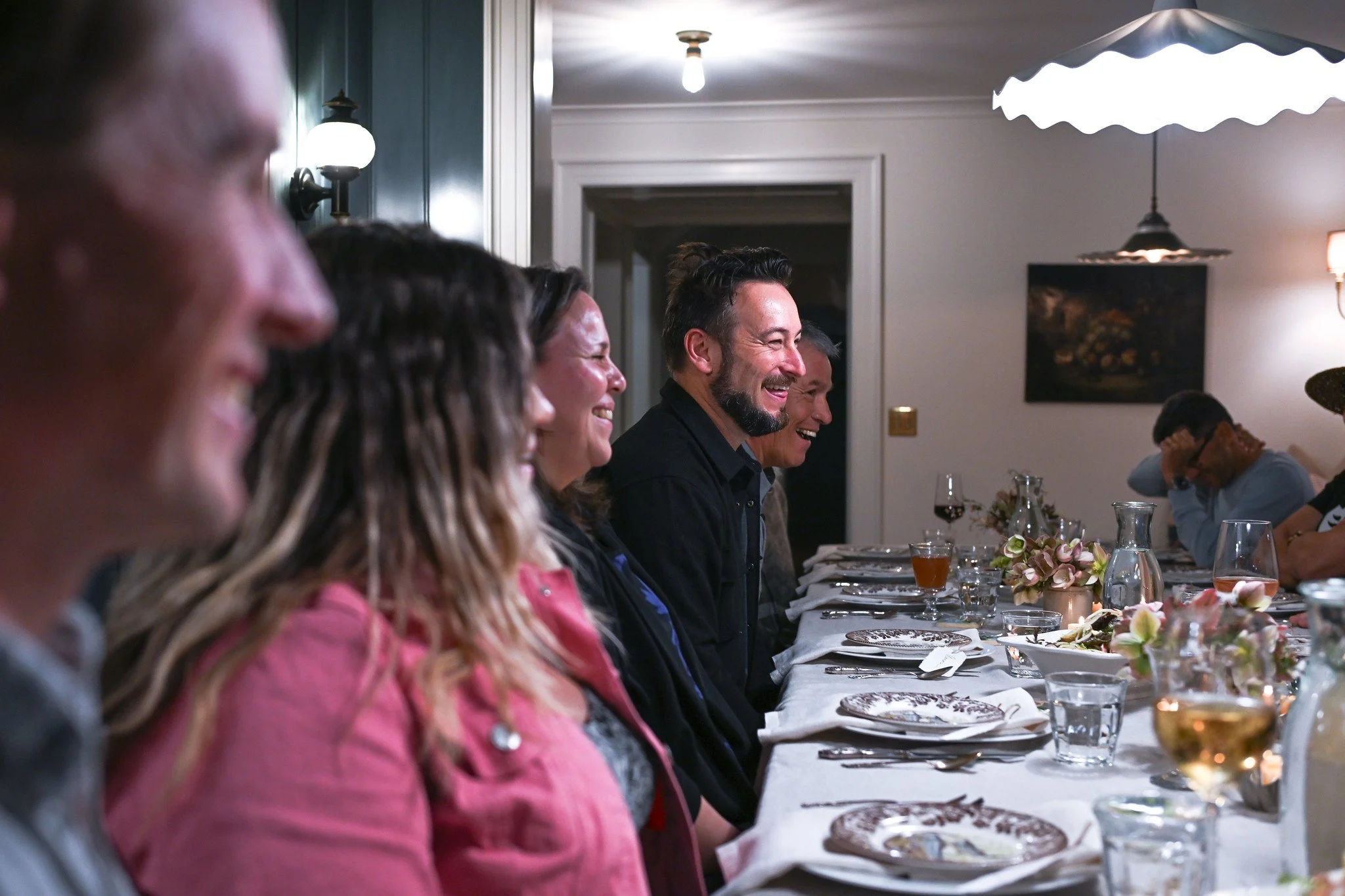Recap: Stewardship Council Dinner
On Friday, March 21, 2025, a diverse group of tribal members, local farmers, civic leaders, and community organizers convened for a groundbreaking gathering hosted at the South Hill home of Elie and Lisa Samuel. The event marked the launch of the Water Wars (how to avoid) project, a collaborative initiative designed to foster dialogue and cooperation in addressing water stewardship challenges in the Nooksack River watershed.
The gathering took place against a backdrop of heightened tensions surrounding water rights in the region. These tensions have been exacerbated by ongoing adjudication processes and competing demands for water resources among Indigenous communities, farmers, and other stakeholders. Despite these challenges, the evening served as a powerful example of how storytelling and shared experiences can build bridges across historical divides.
A Journey from Conflict to Cooperation
The evening began with berry farmer Brad Rader and filmmaker Aaron Straight recounting the origins of the project. Brad shared how his perspective shifted after hearing Jay Julius, former Chairman of the Lummi Nation, say to him at an earlier event: "We are not enemies." This moment inspired Brad to invite Aaron to help tell a story of cooperation that has since evolved from a documentary storytelling project into a broader community organizing effort aimed at fostering understanding and collaboration.
Stories Rooted in Lineage and Connection
Throughout the evening, participants shared deeply personal stories that highlighted their connections to the land and water. Satpal Sidhu spoke about his family's lineage of farming in Punjab, emphasizing that while crops may differ from those grown in Punjab, soil quality and water remain universal priorities for farmers.
Jay Julius shared stories tracing his family lineage back to multiple signers of the 1855 Point Elliott Treaty, underscoring the treaty's enduring significance as both a legal and spiritual foundation for the Lummi people.
As the conversation continued into the evening, several others reflected on how past, present, and future generations must be included in these conversations to create meaningful change—a sentiment that resonated deeply with attendees.
A Feast Reflecting Local Abundance
The dinner itself was a celebration of local bounty with contributions from attendees: salmon caught by Dana Wilson of the Lummi Nation, potatoes provided by a local farmer, cheese from dairy farmer Rich Appel, and raspberries from Brad Rader's farm.
Chefs Lisa Samuel, Mataio Gillis, and Jesse Straight prepared a farm-to-table feast that honored the region's agricultural and cultural heritage. Dana Wilson shared the story behind his salmon contribution—caught 15 miles upstream from the river's mouth while still vibrant and silver—a testament to the river's vitality despite its challenges.
Building Bridges Across Divides
The gathering was skillfully facilitated by Jeff Bos, who created a safe and respectful container for participants to share stories, laugh together, and connect over a shared meal. His careful guidance helped foster an atmosphere where authentic connections could form despite the complex water rights issues that often divide these communities.
Moments of connection demonstrated the potential for collaboration, such as when dairy farmer Rich Appel extended an invitation to Free Borsey, a young Lummi emerging leader, to fish from his land along the Nooksack River—a symbolic gesture of trust and shared stewardship.
Looking Ahead: A Shared Vision for Stewardship
While all participants attended as individuals rather than official representatives of their communities, each came with the blessing of their communities' leadership. This approach allowed for more authentic and personal engagement while still maintaining connections to the broader stakeholder groups.
The Water Wars (how to avoid) project aims to host three future gatherings along key locations in the Nooksack watershed: Lummi lands near the river delta, agricultural areas reliant on irrigation, and Nooksack tribal territory near the river's headwaters. These gatherings will focus on deepening relationships through storytelling while envisioning long-term solutions for water stewardship that honor diverse perspectives.
Guests expressed genuine curiosity and interest in helping coordinate these future gatherings, demonstrating a collective commitment to continuing the dialogue initiated at this historic event.



